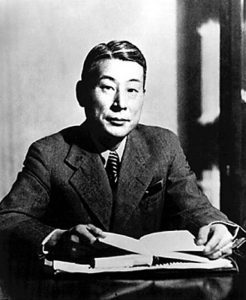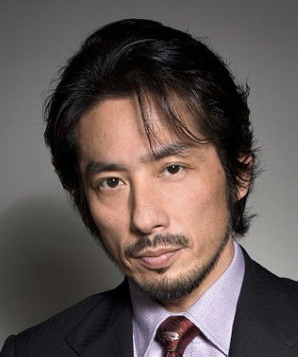How Japanese Schindler in the USSR saved thousands of Jews from concentration camps: Tiune Sugihara
 Thanks to the 1993 Oscar-winning film directed by Stephen Spielberg, the whole world learned the story of Oscar Schindler, a German businessman and member of the Nazi party who saved hundreds of concentration camp Jews during the Holocaust. But even today, few have heard of the Japanese Tiune Sugihara, a Japanese diplomat who worked in the Lithuanian consulate in 1940 and repeated Schindler’s feat.
Thanks to the 1993 Oscar-winning film directed by Stephen Spielberg, the whole world learned the story of Oscar Schindler, a German businessman and member of the Nazi party who saved hundreds of concentration camp Jews during the Holocaust. But even today, few have heard of the Japanese Tiune Sugihara, a Japanese diplomat who worked in the Lithuanian consulate in 1940 and repeated Schindler’s feat.
This story, which can be called one of the most striking in the history of the war, is rarely mentioned even in historical reports on the events of the Holocaust.
In 1940, Sugihara worked as Japan’s Vice Consul in Kaunas, which was then the capital of Lithuania. The city had a large and prosperous Jewish community of about 30,000 people. Between 1939 and 1940, the number of Jews in the city increased by several thousand people fleeing persecution in Nazi-occupied Poland. The refugee stories of the horrors that befell the Jews under Nazi rule literally forced blood to be washed away in the veins of local residents.
Unfortunately, after Lithuania became one of the Soviet republics in June 1940, the Jewish population of Kaunas was “trapped” – Jews could not leave the country even when the Germans came close to Soviet borders. Sugihara, who perfectly understood the desperate situation of the Jews, decided to find a way to use his position to help them.
Jewish refugees could not leave Lithuania and go east through Soviet territory if they did not have a visa in their hands for further travel. Many went to the Dutch-Caribbean islands of Curacao and Guiana, but in order to get there in safety, they needed transit visas through East Asia.
After some thought, Sugihara decided to start issuing transit visas to the Jewish refugees through Japan, which allowed them to travel through the entire Soviet Union and then travel through the territory of Japan to the Caribbean Islands.
When all foreign diplomats were ordered to leave the city, he applied for leave to stay for another 20 days and wrote a letter to his leadership at the Japanese Foreign Ministry asking him to approve his plan. However, according to historian Yutaki Taniuchi, the Japanese authorities completely refused to issue visas to Jewish refugees if they did not have guarantees of further departure from Japan.
Naturally, the refugees could not provide such guarantees, which virtually excluded the possibility of obtaining any type of transit visa. Sugihara wrote to his superiors three times, begging for help. When he received the third refusal, the Japanese faced a dilemma: should he follow orders or his conscience.
It is immediately worth noting that in Japanese culture of the time of Sugihara, hierarchy and discipline were given unconditional priority, and for Sugihara the question of whether to go against the explicit orders of his superiors was really very difficult. He faced severe punishment for abuse of his position and actions in violation of orders.
Visa issued in 1940 in Lithuania by the Japanese consul Sugihara. The refugee traveled through it through the Soviet Union, and then proceeded in transit through the Japanese city of Tsuruga to the island of Curacao.
Visa issued in 1940 in Lithuania by the Japanese consul Sugihara. The refugee traveled through it through the Soviet Union, and then proceeded in transit through the Japanese city of Tsuruga to the island of Curacao.
Every day, hundreds of Jewish families appeared at the gate of the Japanese consulate in Kaunas, begging Sugiharu to help them. As a result, the Japanese vice-consul, supported by his wife Yukiko Sugihara in his undertaking, began issuing visas.
Throughout August 1940, Sugihara and his wife applied for and issued transit visas to Jewish families. They had to work literally in the sweat of their faces, issuing an average of 300 visas per day (usually it took about a month to process so many documents). Sugihara worked around the clock, taking breaks only for sleep and food, deciding to help as many families as possible.
On September 1, 1940, Sugihara was forced to leave Lithuania and boarded a train bound for Berlin. Even already sitting in the compartment awaiting departure, he continued to issue visas, throwing them through a window into the crowd that had gathered near the train.




